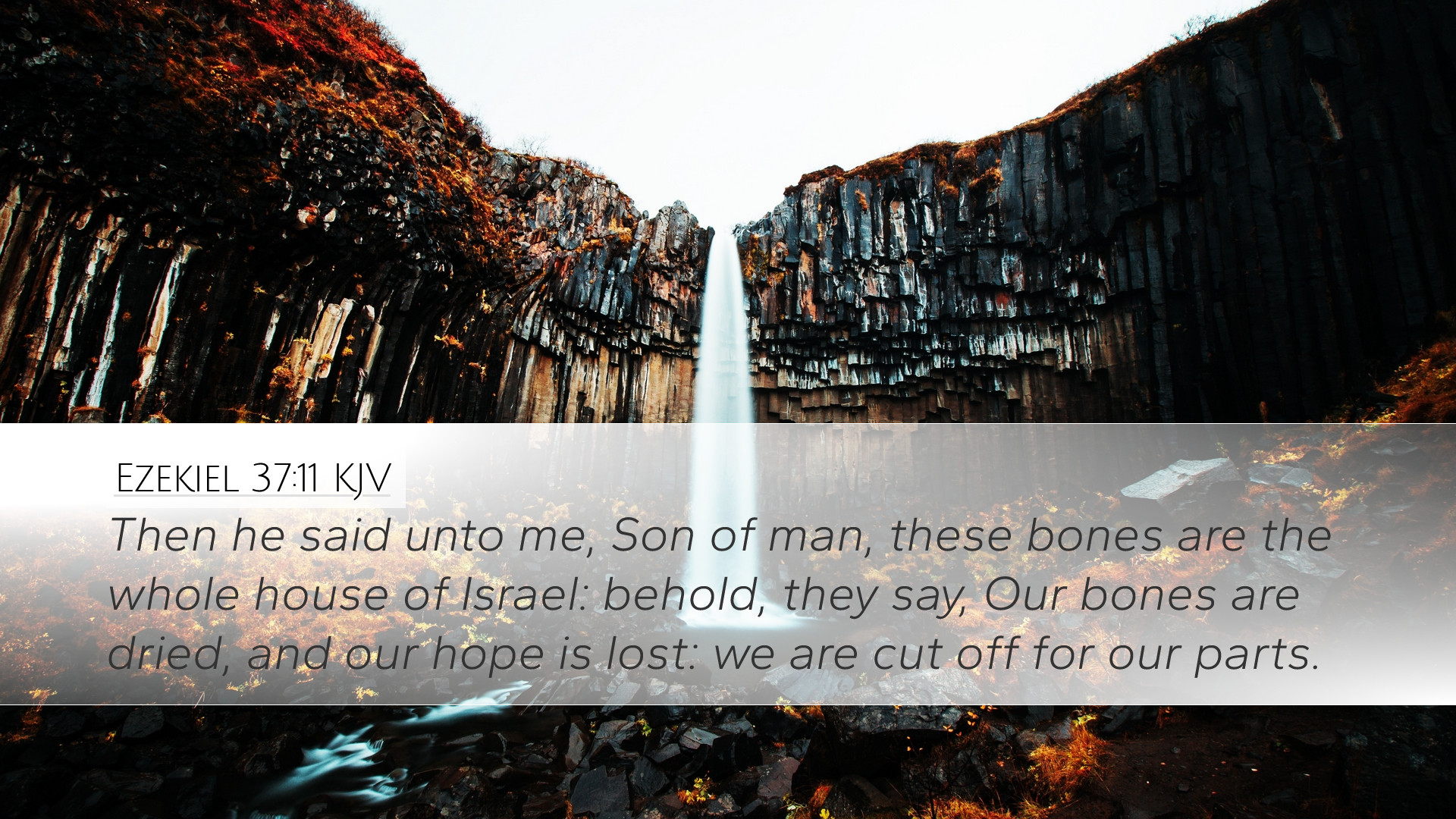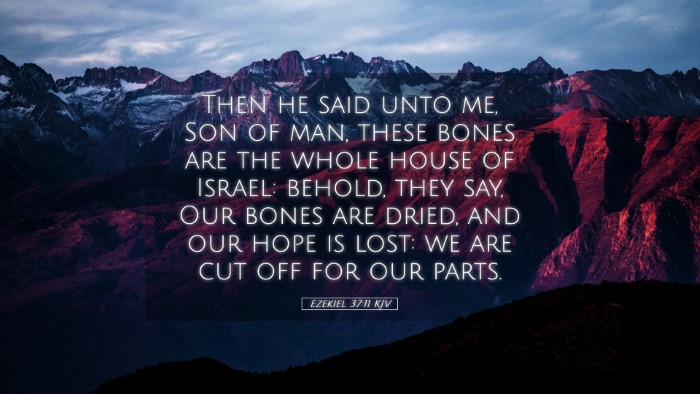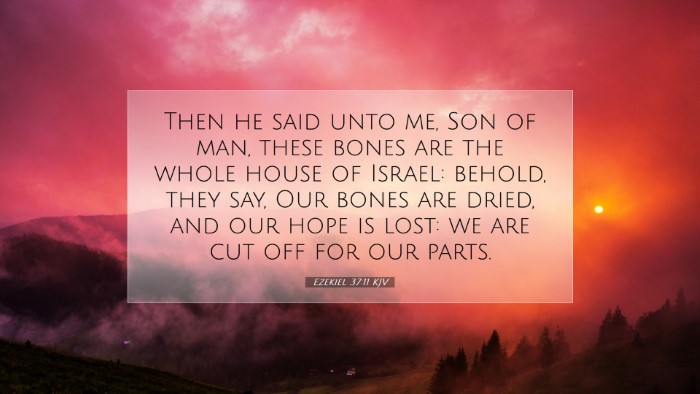Ezekiel 37:11 - Commentary Overview
Verse Reference: Ezekiel 37:11 - "Then He said to me, 'Son of man, these bones are the whole house of Israel. Behold, they say, “Our bones are dried up, and our hope is lost; we are indeed cut off.”'
Contextual Background
This verse occurs within a significant prophetic vision given to Ezekiel, depicting the valley of dry bones. The imagery symbolizes the desolation and hopelessness of Israel during their exile and serves as a profound metaphor for spiritual revival and restoration.
Insights from Public Domain Commentaries
1. Matthew Henry's Commentary
Matthew Henry elaborates on the imagery of the valley of dry bones, emphasizing the powerful representation of despair among the Israelites. He notes:
- The bones symbolize the people of Israel, representing their state of death and disillusionment.
- The phrase "our bones are dried up" reflects the spiritual hopelessness they feel, suggesting a complete loss of vitality and connection to God.
- Henry connects this with the broader theme of the restoration of Israel, noting that despite their desperate situation, God’s promise is to revive and renew His people.
2. Albert Barnes' Notes on the Bible
Albert Barnes provides a thorough analysis of Ezekiel 37:11, focusing on the Lord’s explanation of the vision:
- Barnes interprets "the whole house of Israel" as encompassing all twelve tribes, emphasizing their collective state of hopelessness.
- The expression "our hope is lost" is highlighted as an acknowledgment of their dire circumstances, which leads to a deeper understanding of God’s redemptive work.
- Importantly, he underscores that God's intention behind showing Ezekiel this vision is to indicate that He is fully aware of their plight and possesses the power to bring them back to life.
3. Adam Clarke's Commentary
Adam Clarke expands on the emotional and theological implications of this verse:
- Clarke points out the severity of the Israelites' despair as evidenced by their lament that they are "cut off." This signifies their feelings of abandonment and the devastating impact of their exile.
- He views the revelation of the verse as an invitation from God to recognize their condition, thereby setting the stage for a profound transformation through His intervention.
- Furthermore, Clarke interprets this as foreshadowing the coming of the Messiah, who would ultimately restore not only national Israel but the broader spiritual condition of humanity.
Theological Implications
The commentary from these scholars reflects on several key theological themes:
- Hope in Despair: The acknowledgment of hopelessness serves as a prelude to the restoration that God promises. This bridges the gap between human despair and divine hope.
- Divine Intervention: The verse showcases God's sovereignty, indicating that despite Israel’s situation, He has the power and willingness to restore and revive His people.
- Collective Identity: The reference to "the whole house of Israel" reminds readers that God’s restoration encompasses the community, highlighting the importance of collective faith and identity in God’s plan.
Pastoral Application
For pastors and church leaders, Ezekiel 37:11 offers rich material for preaching and ministry:
- Encouragement for the Hopeless: This passage can be a source of encouragement for those experiencing spiritual or emotional drought, reminding them that God can revive any situation.
- Call to Prayer: The need for intercessory prayer becomes apparent, as pastors can lead their congregations to pray for revival within their communities and church bodies.
- Promoting Unity: The emphasis on the "whole house of Israel" can promote unity among diverse groups within the church, highlighting that all members are important in God's restorative work.
Conclusion
Ezekiel 37:11 serves as a poignant reminder of the hope and renewal that God offers to His people. The insights drawn from the commentaries of Matthew Henry, Albert Barnes, and Adam Clarke provide a multidimensional understanding of this profound text, equipping pastors, theologians, and students with a deeper appreciation of God’s plan for restoration amidst despair.


